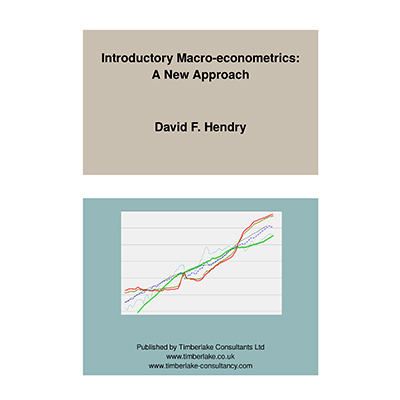Free Download
INTRODUCTORY MACRO-ECONOMETRICS: A NEW APPROACH
 | This short introduction to macro-econometrics focuses on the concepts, tools and techniques needed to model aggregate economic data, here unemployment, wages, prices and money in the UK over a long historical period of approximately 150 years, usually 1860 - 2011, but somewhat shorter for a few of the time series. The basic framework draws on Hendry and Nielsen (2007), Hendry and Nielsen (2010), and emphasizes the need for general models to account for the complexities of economies and the magnitudes of the many changes that have occurred. That combination poses a major challenge for teaching elementary methods. Fortunately, despite the difficulties inherent in the distributional issues of estimators for non-stationary cointegrated time series with multiple location shifts and non- linear relationships, many of the key concepts can be explained using simple examples, then automated computer software can conduct the more complicated empirical modelling studies. The book is the outcome of a six-hour lecture course on Quantitative Economics delivered to second-year Philosophy, Politics, and Economics (PPE) undergraduates at Oxford University. A minimal background in elementary statistics is assumed, but developed quite rapidly while trying to minimize mathematical derivations. |
>Download the book for free
>Download the datasets to replicate the examples
INTRODUCTORY MACRO-ECONOMETRICS - LECTURE SLIDES
 |
Imagine you are living in 1860 - Just over 150 years ago. You work 65 hours a week for 1/5th of modern incomes; you would be ill from numerous diseases and hungry much of the time;living up to 10 to a room with little sanitation, your children ill clad and barefoot, many dying at birth or infancy; often unemployed - when your family would starve; on average you would die in your mid-40s. that was in the then richest country in the world. How did we get here from there? What statistical tools are needed to study evidence in a world that has changed so dramatically? Consider models and methods for investigating macro-economic data: seek to explain the empirical evidence. |
>Download the slides for free
>Download the datasets to replicate the examples